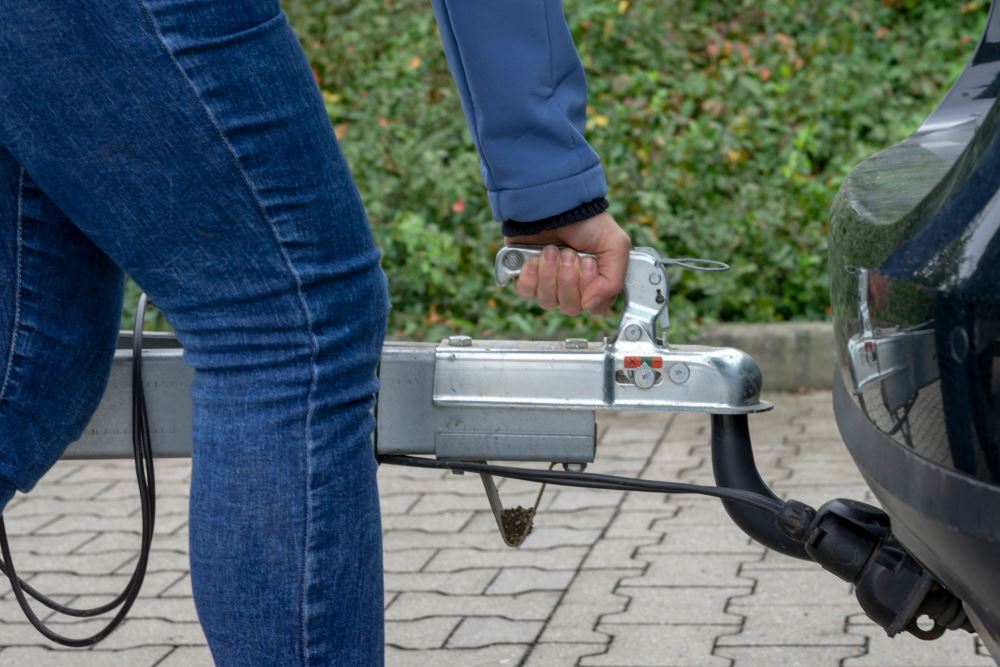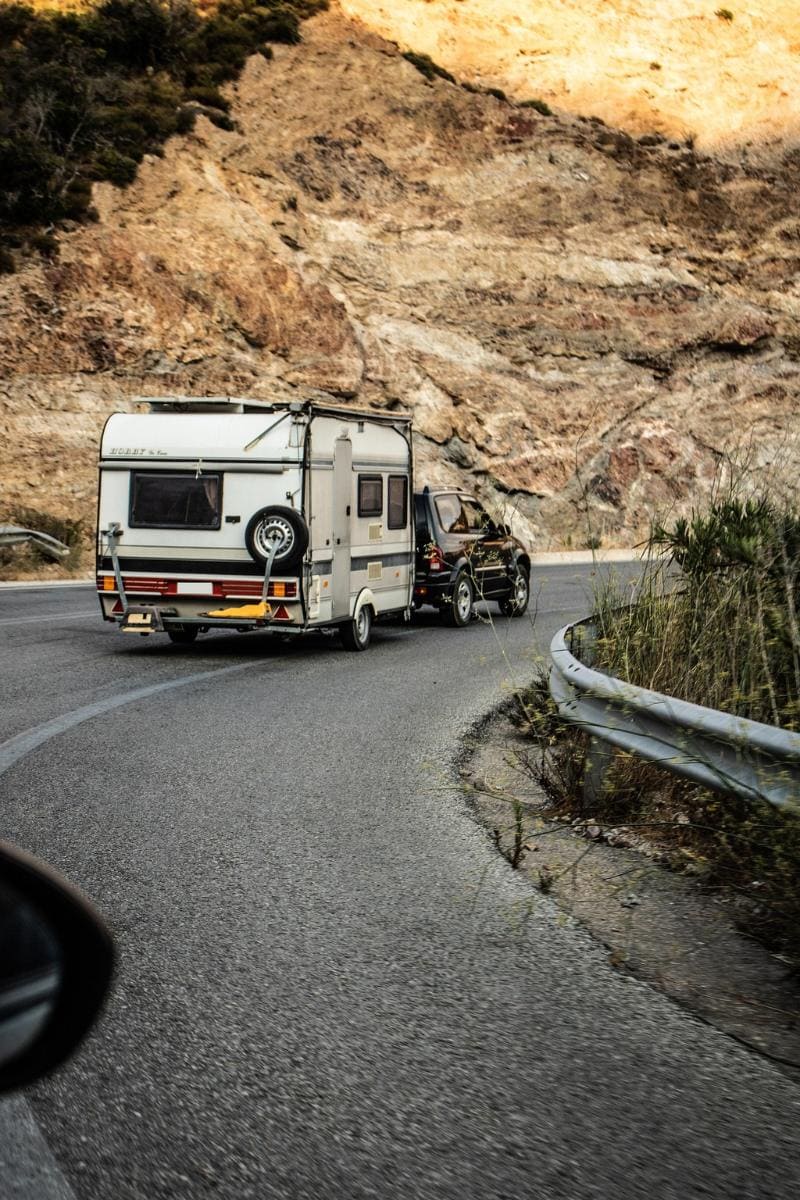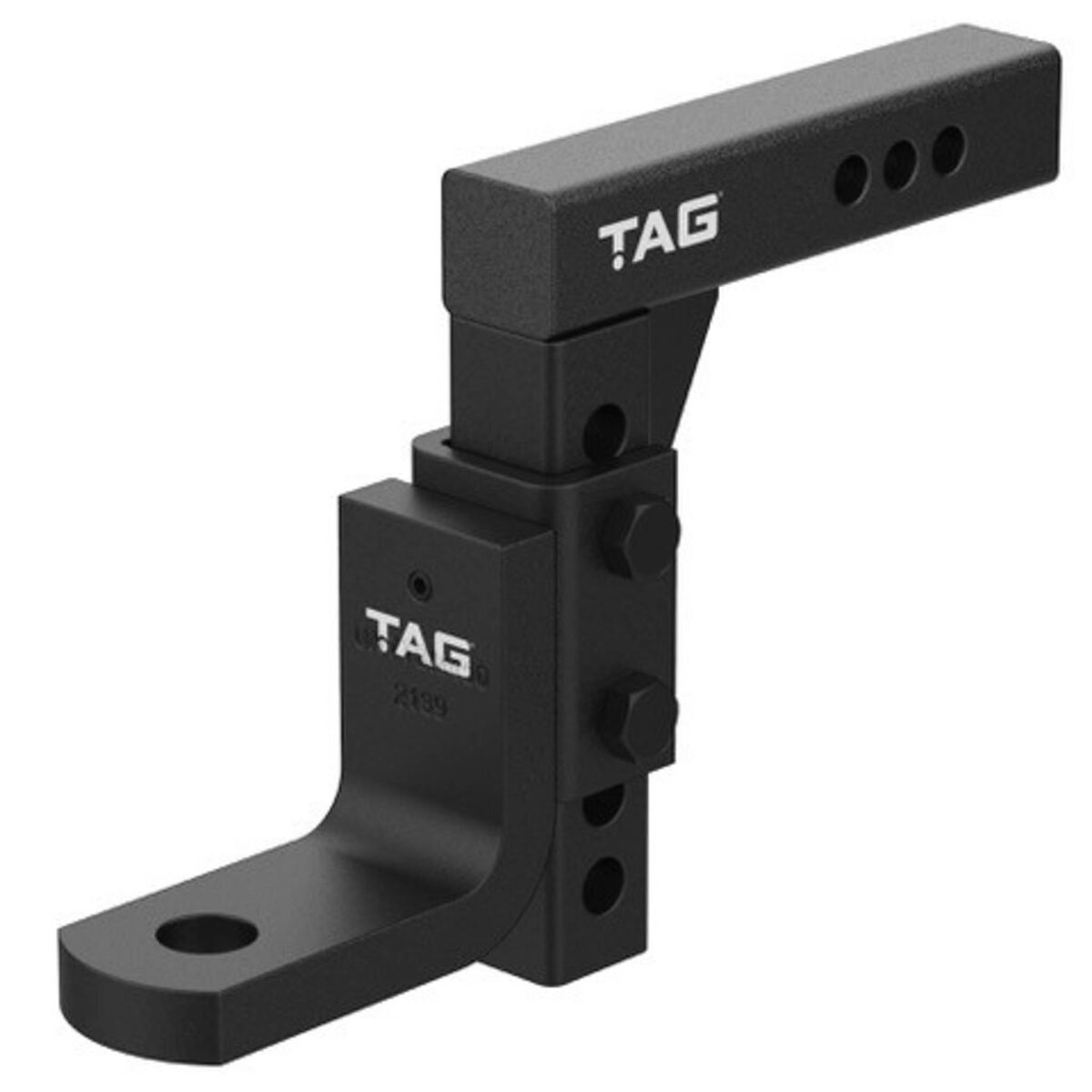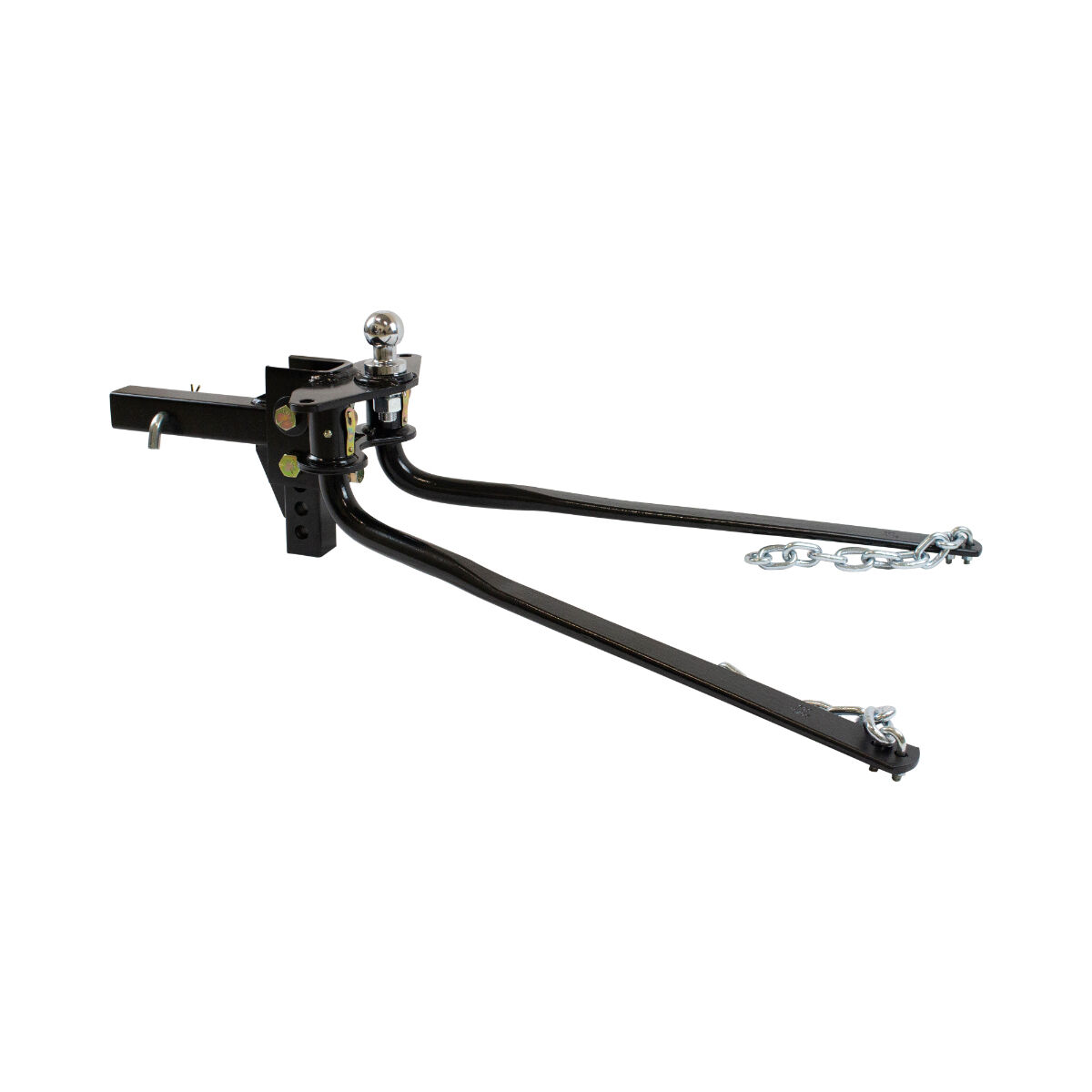How to Choose the Right Caravan Tow Hitch

Choosing the Right Hitch: What Do You Need?
Selecting the right hitch for your caravan involves understanding your specific towing needs and ensuring compatibility with your tow vehicle and caravan. Here’s what you need to consider:
Tow Ball Weight: The first step is to determine your tow ball weight, which is typically about 10% of your Gross Trailer Mass (GTM). The GTM is the total weight of the fully loaded caravan when hitched to the tow vehicle. Exceeding the tow ball weight capacity can be dangerous and is illegal. You can find this information in your vehicle’s user manual or on the tow ball itself.
Tow Ball Height: Measure the height of your tow ball. Different towing setups might require adjustments to ensure the caravan is level when hitched. An adjustable tow ball mount can help you set the correct height for safe towing.
How do You Know If a Hitch is Good Quality?
High-quality hitches are made from durable materials such as high-strength steel. Here’s what to look for in a good hitch:
- Durable Materials: Ensure the hitch is made from high-strength steel or other durable materials.
- Robust Construction: Look for hitches with a solid build, often indicated by a high maximum towing capacity.
- Protective Finish: A good hitch will have a finish that protects against rust and corrosion, such as a black powder-coated finish.
Compliance with Standards
Ensure the hitch complies with relevant Australian standards, such as AS 4177.1:2004. This certification means the hitch has been tested and meets safety and performance requirements.
Weight Ratings
Check the hitch’s maximum towing capacity and tongue weight rating. A good quality hitch will clearly state its weight limits, ensuring it’s suitable for your towing needs. Exceeding these limits can be dangerous, so choose a hitch that matches your caravan’s specifications.
Design and Features
Quality hitches offer features that enhance safety and ease of use. For example, weight distribution hitches should include spring bars and brackets that help distribute weight evenly. Anti-sway hitches should have mechanisms to reduce side-to-side motion. Adjustable hitches should offer easy height adjustments to keep the caravan level.
Ease of Installation
A good hitch should be easy to install with clear instructions. Many high-quality hitches come with all necessary hardware, such as bolts, nuts, and washers. Compatibility with various tow vehicles and couplings is also a sign of a well-designed hitch.
Warranty and Support
A good quality hitch will come with a warranty, indicating the manufacturer’s confidence in their product. Look for hitches with a comprehensive warranty and accessible customer support to assist with any issues or questions.
Is a Caravan Weight Distribution Hitch required?

Deciding if you need a caravan weight distribution hitch (WDH) depends on your caravan’s weight and length, and how stable you want your towing experience to be. If your caravan is heavy or long, a WDH is often necessary. Heavy caravans can make the rear of your tow vehicle sag, affecting driving safety. A WDH distributes the weight evenly, keeping both the caravan and tow vehicle level, which improves stability and control, especially when braking and turning. Additionally, a WDH can enhance towing stability by reducing sway caused by wind or passing large vehicles. This makes towing safer and more comfortable by maintaining the right balance between your vehicle and the caravan .
Using a WDH also makes your ride more comfortable by reducing strain on your tow vehicle's rear suspension, leading to a smoother drive over bumps and dips. In some cases, a WDH might be required by law to ensure you do not exceed the recommended tow ball weight, which can be dangerous and illegal. To determine if you need a WDH, measure the height of the wheel arches on your tow vehicle and caravan when unloaded, then hitch the caravan and measure again. If there’s a significant difference (more than 20mm), a WDH could be beneficial. While not every caravanner will need a WDH, it’s a valuable tool for enhancing safety, comfort, and stability when towing heavy or long caravans. Evaluate your needs and these factors to make an informed decision.
Our top 5 Tow Hitches
Tow Bar Hitch 3500kg Kit
This hitch is perfect for towing light-duty trailers like utility trailers, pop-up campers, caravans, and boat trailers. It ensures a safe and stable towing experience with a 3500kg towing capacity.
The kit includes a high-strength steel tow tongue, a chrome tow ball, and a secure locking pin. Its black powder-coated finish resists rust, and it complies with Australian safety standards. Ideal for most 50mm x 50mm hitch receivers, it’s a durable and reliable choice for everyday towing needs.
Towbar Hitch - 50mm 305.5mm Hole Length 192mm Drop Adjustable 35
Need a reliable hitch for your light-duty towing needs? This hitch is perfect for towing utility trailers, pop-up campers, caravans, and boat trailers. Built with high-strength steel and finished with a black powder coat, it's designed to withstand the elements and provide long-lasting durability.
This hitch fits most 50mm x 50mm receivers and has a robust 3500kg towing capacity, ensuring a stable and secure towing experience. It complies with Australian Standard AS 4177.1:2004, offering you peace of mind on the road. Plus, it comes with a free towball cover for added convenience. Choose this hitch for a dependable and safe towing solution.
TAG Adjustable Heavy Duty Tow Ball Mount - 90 Face, 50mm Square Hitch
The TAG Adjustable Tow Ball Mount is a versatile and durable choice for all your towing needs. With a heavy-duty 50mm square shank and multiple pin holes, it allows for easy horizontal and vertical adjustments, accommodating various towing setups. Made from solid steel, this mount features a powder-coated finish that resists rust, corrosion, and chipping, ensuring long-lasting use.
This mount includes a reducer, enabling the use of either a 70mm or 50mm tow ball, providing flexibility for different towing capacities. It can be mounted in both drop and rise modes, allowing you to adjust the tow ball height to suit your vehicle and trailer. Compliant with ADR 62/02 standards and backed by a TAG limited lifetime warranty, this tow ball mount offers reliability and peace of mind.
Weight Distribution Hitch 600Lb Round Bar Includes Head & Hitch
Mister Hitches Weight Distribution Systems are ideal for caravans with a ball weight between 135kg and 275kg. They evenly distribute weight across all axles, improving stability, control, and reducing tyre wear. This system enhances braking efficiency, headlight alignment, and suspension geometry for smoother towing.
The kit includes a solid steel shank, adjustable ball mount, and 31-inch high-grade steel spring bars. It's easy to install with an instruction sheet provided. The system fits most 2"x 2" tow bar receivers and complies with Australian standards. Backed by a 25-year manufacturer's warranty, it's a reliable choice for safer towing.
TAG Weight Distribution Hitch 3500/355kg WDH355
The TAG Weight Distribution Hitch ensures a smooth and controlled towing experience by evenly distributing weight across the towing vehicle and trailer. This round bar style hitch is ideal for caravans with a ball load minimum of 270kg and a towing capacity of 3500kg. It helps maintain a level ride, enhances stability, and reduces sway.
With a ball weight capacity of 350kg, this hitch provides added safety and control for your towing setup. Please note that using this product requires a hitch receiver attached to your tow vehicle.
FAQ on Caravan Hitches
What Is A Caravan Weight Distribution Hitch?
A Caravan Weight Distribution Hitch (WDH) is a type of hitch designed to evenly distribute the weight of the caravan across the axles of both the tow vehicle and the caravan. This is achieved through a system of spring bars and brackets that transfer some of the weight from the rear axle of the tow vehicle to the front axle and the caravan’s axles.
When you add a heavy load, such as a caravan, to the rear of your tow vehicle, it can cause the rear to sag and the front to lift. This imbalance affects the vehicle’s handling, braking, and overall stability. A WDH helps to correct this imbalance by redistributing the weight, ensuring that both the tow vehicle and the caravan remain level.
Using a WDH is particularly important for caravanners who often travel with heavy loads or on uneven terrain, as it helps maintain control and safety throughout the journey.
What are the caravan tow hitch types?
-
Anti-Sway Hitch: An Anti-Sway Hitch reduces the side-to-side motion (sway) of the caravan while being towed. Sway can be caused by wind, passing vehicles, or sudden maneuvers. This hitch improves stability, making the towing process safer and more comfortable. Some weight distribution hitches include integrated sway control.
-
Standard Tow Ball Hitch: The Standard Tow Ball Hitch is the most common type of hitch. It consists of a tow ball attached to the tow vehicle and a coupler on the caravan that fits over the ball. This hitch is suitable for on-road and light off-road towing. It is simple to use but offers limited articulation compared to specialized off-road hitches.
-
Off-Road Hitch: Off-Road Hitches are designed for rugged terrain. They provide greater articulation, allowing for more movement in all directions, essential for navigating uneven surfaces. Examples include the Cruisemaster DO-35 and Hitch-Ezy, known for their durability and flexibility in off-road conditions.
-
Poly Block Hitch: The Poly Block Hitch uses a polyurethane block to connect the caravan to the tow vehicle. This hitch offers good articulation and shock absorption, making it ideal for off-road towing. However, aligning and connecting the hitch on uneven ground can be challenging.
-
Pin Coupling Hitch: Pin Coupling Hitches use a pin to connect the caravan to the tow vehicle. They are easy to use and provide excellent articulation, making them suitable for both on-road and off-road towing. These hitches are less common and might require specific setups on the tow vehicle.
-
McHitch Uniglide: The McHitch Uniglide features a unique design where the point of attachment and the point of movement are separated. This reduces wear and tear on the hitch and provides smoother towing. It is compatible with various weight distribution systems and offers high articulation for off-road use.
Tip Also read about Choosing the best Caravan Coupling






